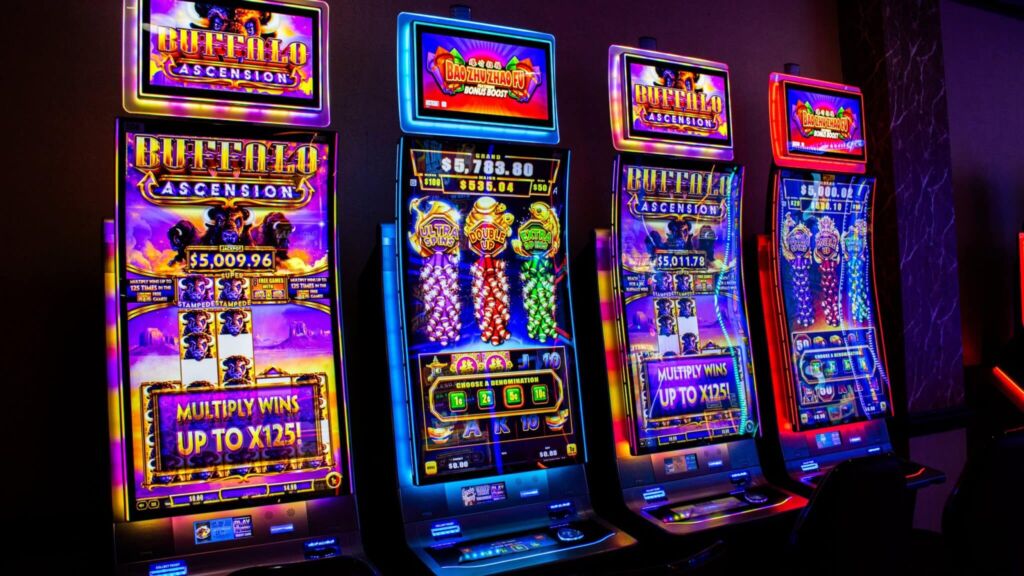Slot games are iconic in both physical and digital casinos, attracting newcomers and veterans alike with the dream of hitting a substantial pay day. By understanding how psychology plays a vital role in slot gaming, players can enrich their gaming sessions. This guide will delve into mental triggers, exploring how these aspects enhance the appeal of slots and offering strategies for enjoying games responsibly.
How Slot Machines Work: The Basics
Before delving into the mental aspects, it's vital to grasp the fundamental mechanics of slot machines. This understanding is crucial for realizing how specific design choices can evoke distinct psychological reactions among players.
Random Number Generators (RNG)
The modern slot machine relies on Random Number Generators (RNGs) to determine each play's outcomes. RNGs produce unpredictable numeric patterns that are translated into specific screen symbols, guaranteeing that each play stands alone in terms of probability and thus maintaining constant winning odds. This randomness is a significant factor in what makes slot gaming exciting.
Return to Player (RTP) and Volatility
Slots come programmed with a defined Return to Player (RTP) percentage, indicating the expected payback a player is likely to receive from the machine over time. For example, a machine with a 96% RTP should theoretically return $96 for every $100 bet. Alongside RTP, volatility determines win frequency and size: high-volatility machines grant fewer but larger wins, while low-volatility games provide smaller, more frequent payouts. Grasping these concepts can significantly influence how you plan and manage your gameplay expectations.
Why Slot Machines Are Captivating
The compelling nature of slot machines—be it in real casinos or virtual setups—is no accident. Their design and functionality are meticulously crafted to capture player attention, provoke curiosity, and sustain participation. Here, we delve into the main psychological factors that make these machines irresistible.
1. The Excitement of Uncertainty: Variable Rewards
One of the key attractions of slot machines is the principle of variable reinforcement—a core aspect of many gambling activities. Every spin's result remains unknown, creating anticipation akin to that found in games of chance.
In essence, variable reinforcement in psychology involves the unpredictable rewarding of behavior, which has been shown to intensify and increase the repetition of that behavior. In slot contexts, players continue hitting the spin button, lured by the hope of a reward whose timing they can't predict. This creates an anticipatory cycle that reinforces continuous play.
2. The “Near Miss” Effect
The phenomenon known as the 'near miss' effect can make it seem as though you're just about to win, even when you're losing. If slot symbols align almost perfectly but one image is off, players sense a near victory. This invokes frustration combined with thrill, persuading them to keep trying for the grand prize.
Studies suggest that near misses can cause users to indulge longer in the game, both in time and finances. When occurring, a near miss tricks the brain into perceiving a reward, maintaining involvement. This cycle leads to players returning to machines, drawn by the illusion of proximity to a prize, even though odds remain unaltered.
3. Stimulating Senses through Bright Lights and Sounds
Slot machines are crafted to visually and audibly entertain. Bright flashing visuals and triumphant audio cues combine to offer a multisensory gaming adventure that keeps engagement high. These stimuli cultivate positive emotions and embed the perception that playing yields rewards. When a win happens, the machine might burst into sound and light celebrations, amplifying excitement and encouraging continued play.
4. Losses Disguised as Wins
Some slots arrange for players to believe they're winning, even amidst losses—cleverly disguising losses as victories. For instance, winning messages may flash coupled with celebratory tunes when a payout, though lower than the initial bet, occurs. This tactic can create a perceived win, leading to prolonged gameplay.
5. The Jackpot Fantasy
Among the top slot attractions is the prospect of winning a life-altering jackpot. Machines with progressive jackpots offer ever-increasing prizes as more people play, capturing the hope for a huge payoff. Imagining the transformative impact of a potential jackpot has an intense psychological pull.
Even with slim odds, the chance to land a jackpot remains an enticing force. It’s the dream of a life-changing win that drives many to return, albeit the odds leaning heavily against it. The hope for a big payoff frequently ensnares players in ongoing engagement with the game.
How to Cope with the Psychological Pull of Slots
While recognizing the psychological allure underpinning slot machines, it is crucial to engage with these games sensibly. Here, we suggest some practical tips for managing gambling’s psychological components and enjoying slots without fostering harmful habits.
1. Set a Budget and Stick to It
Begin by strictly budgeting your spending before you play. Knowing exactly how much you’re ready to risk can prevent excessive trailing of losses and ensure you do not exceed financial limits.
2. Take Regular Breaks
The thrill of winning or a near miss can captivate a player; thus, it’s important to take regular breaks to sustain enthusiasm and maintain clarity. Such pauses offer time to reevaluate and return to the game with a refreshed outlook.
3. Know When to Walk Away
Many may play on during bad runs, convinced a win is right around the corner. However, it's wise to know when to cut your losses. Establishing limits and sticking to them prevents financial overexposure.
4. Refrain from Playing under Emotional Strain
Slot play and overall gambling can escalate issues when driven by emotions such as stress, boredom, or discontent. Avoid gambling if you are emotionally vulnerable, as it often results in misjudgments and additional losses. Taking a break to engage in other activities helps reset your mindset before returning to the game with sound reason.
Reflections on the Desires and Dangers of Slot Games
Slot machines transcend typical games of luck, functioning as experiences designed to engage certain psychological triggers. The draw of unpredictability, near miss phenomena, sensory stimulation, and the appeal of a jackpot all amplify slot machine allure. Awareness of these mental draws aids in responsible slot machine engagement.
By implementing limitations, pacing play, and being mindful of gambling’s psychological traps, you can relish the excitement of slots without succumbing to potentially addictive behaviors. Always remember that gambling serves as a form of entertainment rather than a moneymaking venture; approach the games wisely to sustain a controlled gaming attitude.



